The best games of 2016
(And the ones that disappointed us.)

The year is nearly over, and I don't think I'm alone in saying that I'm ready to leave behind the dark, twisted fantasy that is 2016.
No matter your political persuasion, social status or country of residence, you'll have felt disquieted by events at some point this year. The sheer scale of 2016's failings allows for such blanket statements. Natural disasters, mass shootings and political events have left me buffeted by wave after wave of anxiety.
Because of this never-ending cycle of unease, video games have been more important to me this year. Of course, they're always a form of escapism, but in 2016 they've had to function as a kind of digital cocoon.
Gaming has been a place to retreat. A moment of respite. Whether passing the minutes on a mindless clicker or puzzle game, losing myself for hours in grand strategies and sport sims or taking a long weekend to head out on a fantastic adventure, gaming has helped me. A lot.
Perhaps that's why I've been reacting to game delays with all the composure of a YouTube commenter. And, God, the delays have come thick and fast.
Three of my most anticipated games at the start of the year -- The Legend of Zelda: Breath of the Wild, Persona V and Hideki Kamiya's new RPG Scalebound -- all got pushed into 2017. Tacoma, FullBright's first game since the excellent Gone Home? 2017. Cuphead, the delightful bullet-hell platformer with hand-drawn animations? 2017. Horizon Zero Dawn? You guessed it.
At times the delays felt personally tailored to rob me of what little joy was left in this miserable year. And I haven't even mentioned Mass Effect. A moment of silence, if you will, for what you could've been playing this Christmas:
Despite the many, many delays, 2016 has actually been a pretty great year, at least when it comes to gaming. Long-running series Battlefield and Pokémon both recaptured fans' hearts in a big way, Uncharted had a well-received send-off, Blizzard nailed another genre. Hell, The Last Guardian finally happened!
Then there was hardware. Microsoft released a smaller, (kinda) faster Xbox with UHD Blu-ray support in the Xbox One S. We got a smaller PlayStation 4 and the (kinda) 4K-capable PlayStation 4 Pro. Oh, and we also had our first look at Nintendo's new system, the Switch. Although the jury will remain out until its release in March, it's definitely an excitingly different machine.
VR also happened, in a big way. After some not very consumer-friendly early products, both HTC and Oculus released their mass-market headsets, the Vive and the Rift, for gaming PCs. Not to be outdone, Sony launched PlayStation VR for its many PS4s, and Microsoft teased Project Scorpio, a new Xbox that will be VR ready.
But it's the end of the year, and I'm rambling. I've pretty much known what my game of the year was likely to be since a 30-minute gameplay session at E3, but hearing about one person's favorite game is never particularly interesting. So, to wrap up our week of winners, ten Engadget editors picked their favorite games of 2016 (and a few titles that didn't quite hit the mark).
Enjoy, and remember: Other opinions are also valid.
Aaron Souppouris
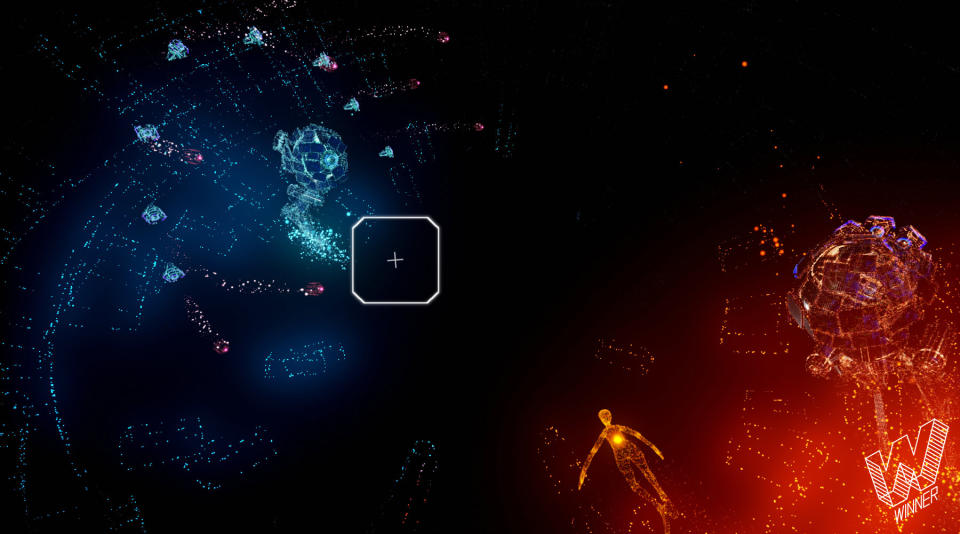
Winner: Rez Infinite
Mat Smith wants to play all games in a vibrating suit.
The original Rez launched on the Dreamcast and was a critical hit. That was back in 2001. It's a testament to how well Rez Infinite still plays -- and how PlayStation VR augments it -- that it was my favorite game of 2016.
So it's not new, but Rez fits so well with PSVR, and is one of the rare full-meat games available at launch. Engadget has talked at length about the immersive power of virtual reality, and here's a fine example of what it can do for existing games. When I tested it out at the Tokyo Game Show, I explained how it felt like it was made for VR, with its "hacker" wireframe designs and the on-rails, revolving-view gameplay. It clicks so well that it became, for me, the best example that bridges how we play games now and how we could play them in VR. When games are ported this well, it's hard to see how virtual reality could fail. (Oh, and I got to play it in a suit made of tiny vibrators. Which is obviously the best way to play it.)
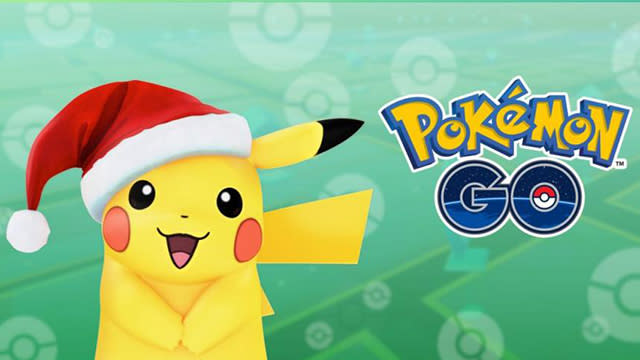
Runner-up: Pokémon Go
Non-gamers' most talked-about game was addictive and fun, and points to the future of mobile gaming. Augmented reality, people!
Loser: Other PSVR games

Yes, my pick for the year was a PSVR-compatible game, but the start of VR on the PlayStation was more whimper than roar. As Devindra put it in his review, "as great as some of the games are ... nothing has pulled me back to play repeatedly as much as recent non-VR titles like Overwatch or Forza Horizon 3." Aside from Rez, Arkham Asylum was a fun way to spend a couple of hours, but that's where the game ended. The boxed-in demo disc might have 17 things to play with, but these are short 15-minute experiences. Fun, yes, but I didn't want to replay most of them, nor did they convince me to buy the full versions. A short Resident Evil 7 teaser is also included, but the entire game doesn't launch until late next month. Sony can couch this all in excuses that it's a nascent platform and this is just the start, but I'd advise anyone thinking of buying into VR to give it another 12 months. We need more games.

Winner: 1979 Revolution: Black Friday
Jessica Conditt was forced to pick a loser.
We need more games like 1979 Revolution: Black Friday. The world is in upheaval: Syria is ravaged by catastrophic slaughter and destruction; there's government-sanctioned murder on the streets of the Philippines; North Korea is racing to arm itself with nuclear weapons; Russia shows flippant disregard for international laws. We've all seen the headlines, but it can be difficult to grasp the awful severity of these situations from text or images alone. Video games have the power to breach this empathy gap.
1979 Revolution is a beautifully crafted game about the Iranian Revolution, told through the eyes of a photojournalist, Reza, who is caught in the crossfire. Developers at iNK Stories conducted interviews with Iranian scholars, protesters and journalists who participated in the revolution, adding profound weight to the narrative that plays out in the game. It's intense, emotional and thoughtful, and it humanizes a crucial moment in history. Even though parts of 1979 Revolution feel clumsy, the overall experience is powerful and represents an important step forward for video games as immersive art.
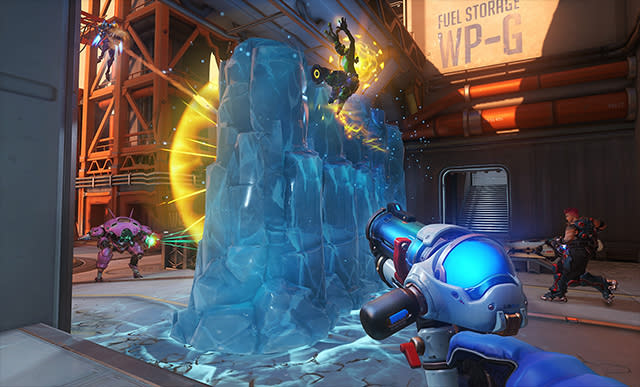
Runner-up: Overwatch
I'm just as surprised as you are. This is not the type of game I'm usually drawn to, but between its thriving eSports scene, rapid-fire gameplay and charming characters, this year I fell in love with a first-person shooter. And it feels damn good.
Loser: Splatoon
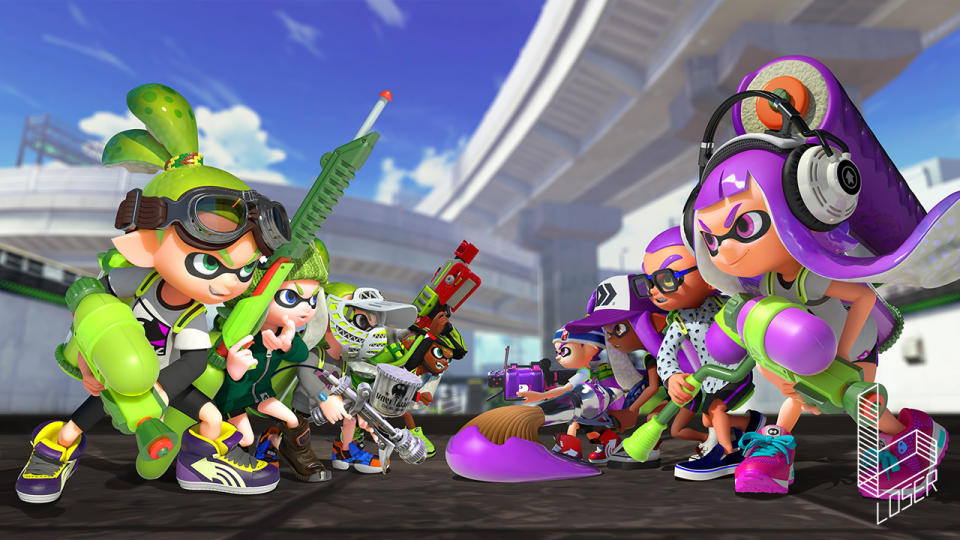
Hear me out before sharpening your pitchforks. On its own, Splatoon is a lovely game that somehow turns the combination of paint and squids into an enjoyable competitive shooter -- but this year, Nintendo sucker-punched it. The final Splatfest took place in July, signaling a larger winding-down for the Wii U as Nintendo prepared to unveil its new console, the Switch. In essence, 2016 was a transition year for Nintendo, which had to figure out its identity without CEO Satoru Iwata while quickly moving on from the struggling Wii U. Splatoon itself is a solid shooter, but the loss of ongoing updates makes it a loser in 2016. At least it looks like we'll get more Splatoon when the Switch hits shelves in March.
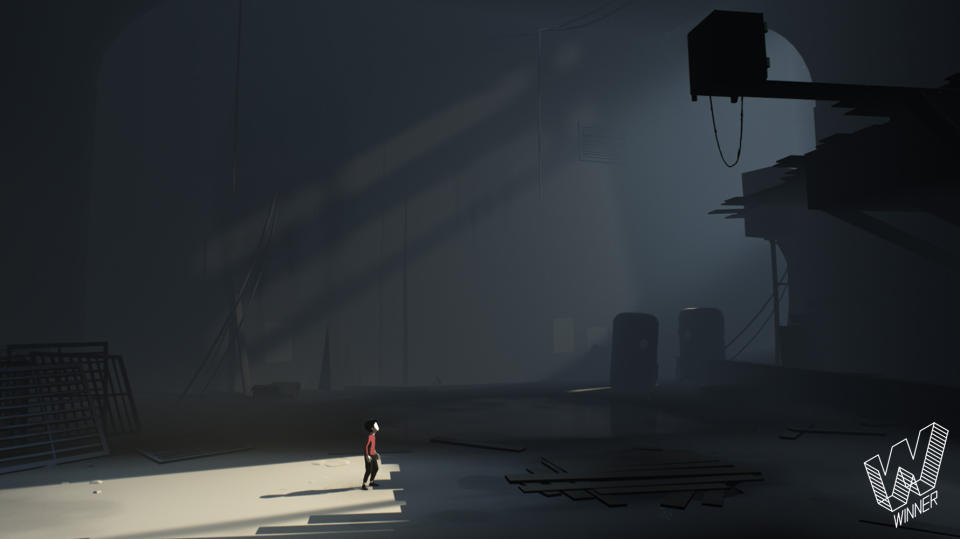
Winner: Inside
Nick Summers changed his pick three times.
"Is that it?" I thought as the credits began to roll. But then I stopped and put down my DualShock 4 for a moment. A few seconds later and it hit me like a freight train. The story that Playdead had been trying to tell. The real reason that a small, skinny boy had overcome sentry guards, electrifying robots and terrifying sea monsters to break "inside" an elaborate dystopian society. I won't spoil the ending, because you need to experience it yourself. But trust me when I say that it elevates an already beautiful puzzle platformer into something quite extraordinary.
When Limbo arrived in 2010, it was hard to imagine a more stylized aesthetic. The monochrome visuals and haunting soundtrack felt unique and memorable. Inside goes a step further, adding the occasional splash of color and upping the detail in the environments. The hero's animations are stunning too, adding weight to the challenge at hand. He'll heave himself over fences and slide uncontrollably down ledges. A weak, solitary child up against seemingly insurmountable odds.
The game has some beautiful music too, recorded in part with a real human skull. If that's not deserving of a Game of the Year nod, I don't know what is.
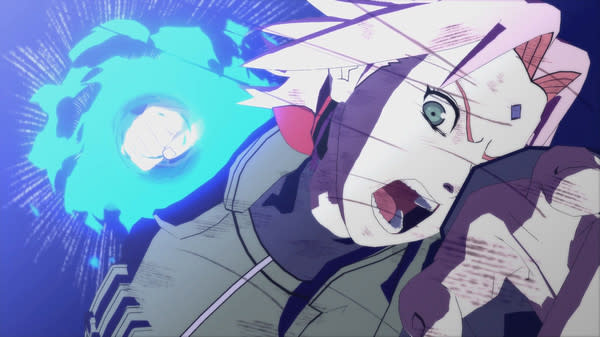
Runner-up: Naruto Shippuden Ultimate Ninja Storm 4
The saga ends with another impressive title from CyberConnect2. The cutscenes are dazzling and the combat system is surprisingly deep, with plenty of characters and special moves to choose from.
Loser: Virginia
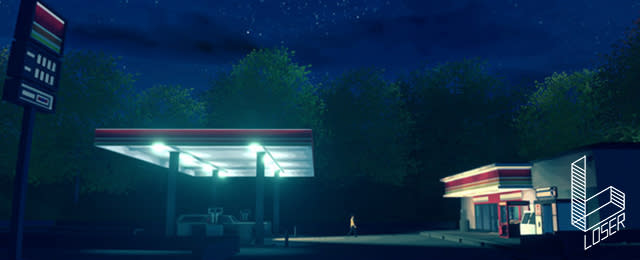
When Virginia hit my radar, I had just finished watching Stranger Things. It looked perfect. A simple but expressive art style paired with an intriguing mystery thriller story. Yum. But the game confounded more than it intrigued. The lack of dialogue was novel at first (the story is told through music and visual cues alone), but I quickly found myself struggling to keep up. It was too weird, too purposefully ambiguous. What was with the bull? I turned to the internet for answers, poring over countless fan interpretations. None of them left me satisfied. I'm sorry, 505 Games, I really wanted to like your game. It just didn't click for me.
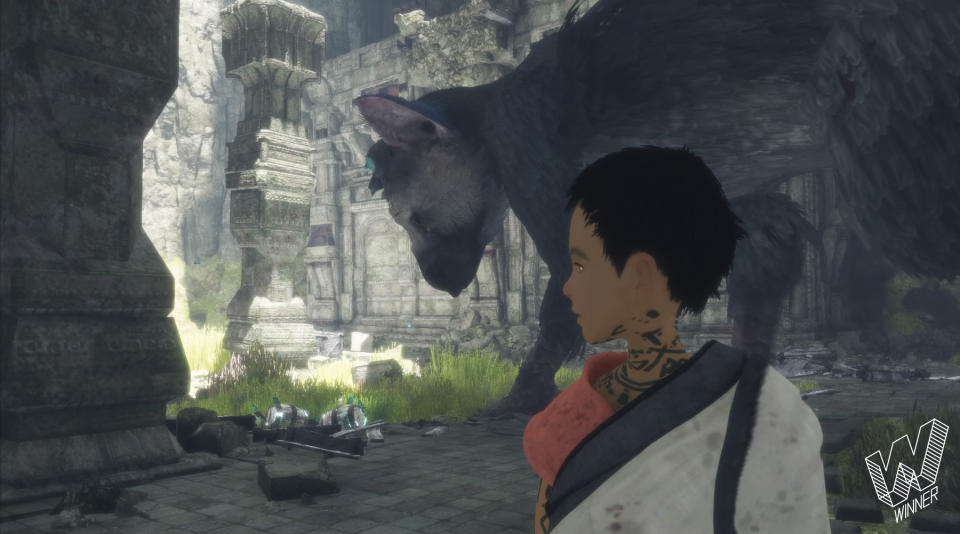
Winner: The Last Guardian
Aaron Souppouris is easily moved by animals.
The Last Guardian differs from so many games of its ilk. While the likes of Uncharted and Tomb Raider have you embodying a hero, this does not. The game has two protagonists -- an unnamed boy and "Trico," a giant cat-like griffin. But while I controlled them both, I embodied neither. Instead, I simply watched a relationship form.
Through my exploration and problem solving, Trico and the boy learned to trust each other, and I learned to love them both. And then I was forced to sit, helplessly, listening to the game's narrator recounting a story that I knew had to end, even if I didn't want it to.
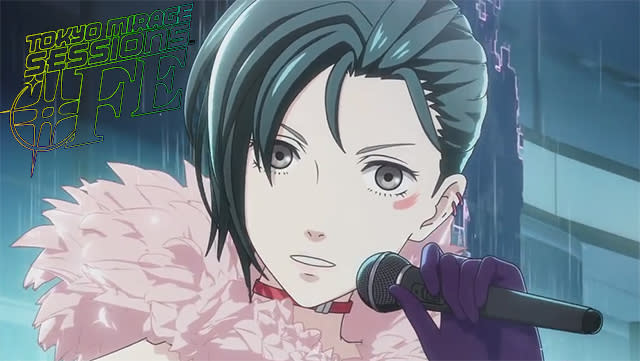
Runner-up: Tokyo Mirage Sessions #FE
It doesn't reach the heights of either the Persona or Fire Emblem series, but solid JRPG fundamentals and an amazing soundtrack brightened Brexit for me.
Loser: Superhot
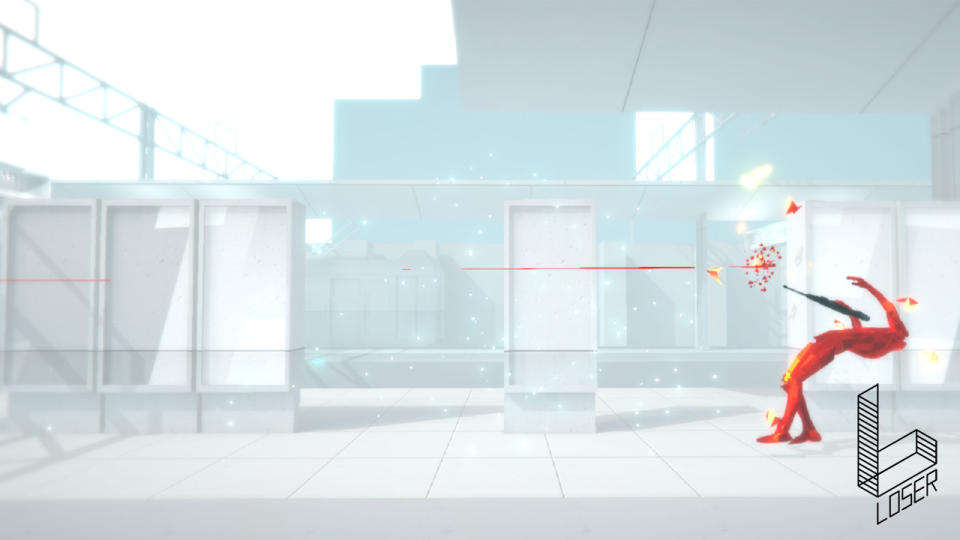
Here's the problem. I played Superhot, the Unity webgame, back in 2013, and was immediately taken with its premise: Time slows to a crawl when you don't move, making each sequence a bullet-time puzzle game. I then counted the days until I could play Superhot, the actual game. When it finally came to Steam, though, I was disappointed. One of the elevator pitches for Superhot was "Braid with guns." But while Braid added layer after layer on top of its unique time-bending mechanic, Superhot failed to expand on its great concept in any meaningful way. It just wasn't the challenging puzzle game I wanted.
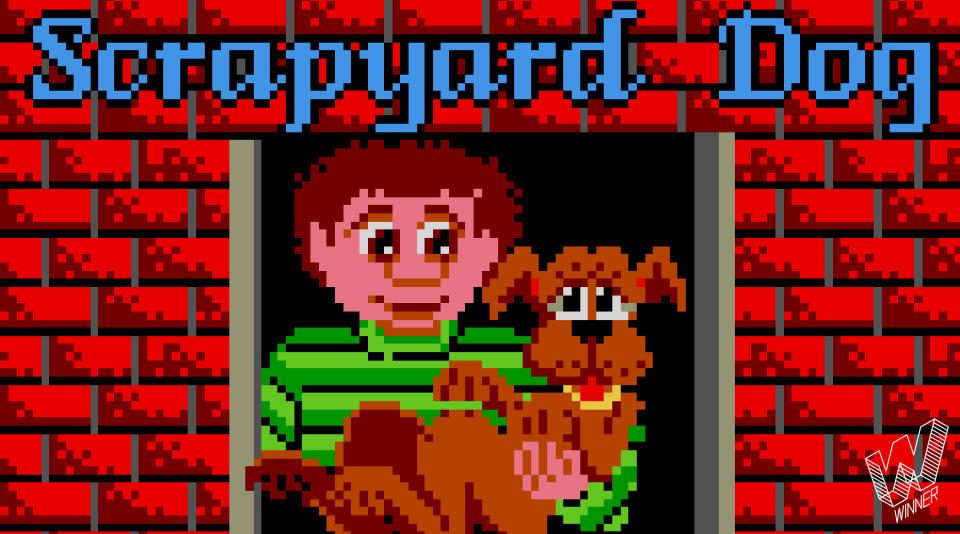
Winner: Scrapyard Dog
James Trew doesn't play modern games, but he insisted on participating anyway.
If you like platform games, then 1991 was a big year. That's when the world was introduced to Sonic the Hedgehog, and the year Mario made his SNES debut in the US. It's also the year the forgettable Scrapyard Dog (and its soulless hero, Louie) launched on the Atari Lynx. Let's be clear: Scrapyard Dog isn't the best platformer from 1991, even on a handheld. It's not the best platformer on the Lynx. Or even the best one beginning with an S (Shadow of the Beast, yo). Back in 1991, Scrapyard Dog was basically a poor man's Mario for the Lynx.
When I revisited Louie and his dawg 25 years later, though, I realized there's actually a lot more to the game than younger me ever knew. Some of it basic, like hidden warp locations and general Easter eggs. But there's also a decent skill curve and even some clever gameplay to enjoy. Scrapyard's still not the Mascot platformer I wish the Lynx had, but it's definitely at least the second-best platformer on the Lynx that starts with an S, and earned more hours in my handheld in 2016 than I'd ever have expected.
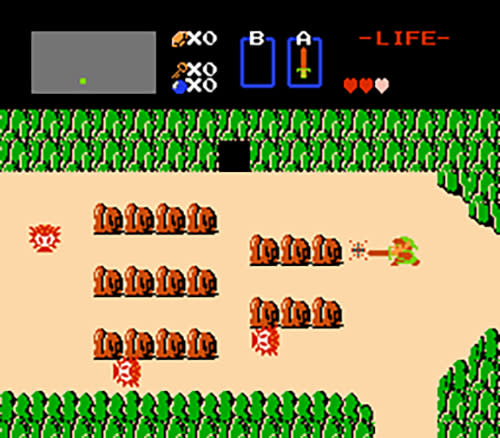
Runner-up: The Legend of Zelda
When a game is still this much fun in 2016, it's no wonder it has such a legacy.
Loser: Saboteur
In 1985, Saboteur on the Spectrum or Commodore 64 was an atmospheric Ninja slash-'em-up, with action-packed gameplay. A precursor to the popular Shinobi franchise. In 2016 (ported to Android), it was just a terrible mess. Throwing shurikens happened accidentally, and "action-packed" turned out to be "fly-kicking on the spot in the vain hope one might connect with the enemy." A bit like discovering your favorite T-shirt from your teenage years: It possesses a retro cool, but all you can focus on is the mysterious man-boobs. There's no way it was this bad in the '80s on my Spectrum, though, so I'm squarely blaming Android (or perhaps the UI of mobile gaming). At least the theme tune (embedded above) stood the test of time.
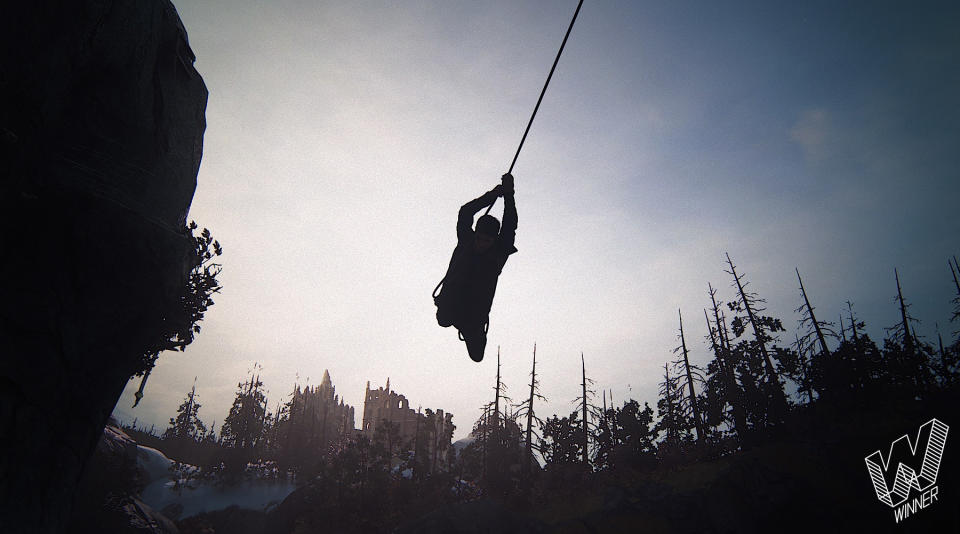
Winner: Uncharted 4
Nathan Ingraham identifies with action heroes called "Nathan."
I've had a PS4 for about two years now, and Uncharted 4: A Thief's End is the first game I've played that has truly felt "next-gen." That might be because of the consistently excellent level of polish that's become a hallmark of Naughty Dog's games rather than anything technical, but the scope and sheer beauty of Uncharted 4's world bests anything I played in 2016. Naughty Dog has long been adept at building gorgeous, lifelike environments, but Uncharted 4 takes that mastery far beyond what the company has done in the past.
Fortunately, the storytelling in Uncharted 4 also far exceeds that of the previous games in the series. Directors Bruce Straley and Neil Druckmann, the dream team behind The Last of Us, guide the Uncharted ship for the first time and do an amazing job at greatly expanding the story's emotional depth. The game is also the most varied in the series by far. In the first six chapters, the viewpoint, location and even time are constantly shifting -- it takes a while for the game to settle into the familiar Uncharted rhythm, and that's a good thing. And just when things are starting to simmer down, the game starts throwing out some great plot twists.
It's not often that a developer can go back to the well for a fourth game in a series, even one as beloved as Uncharted -- let alone make that fourth game the best. But in this case, the series ends on a high point.
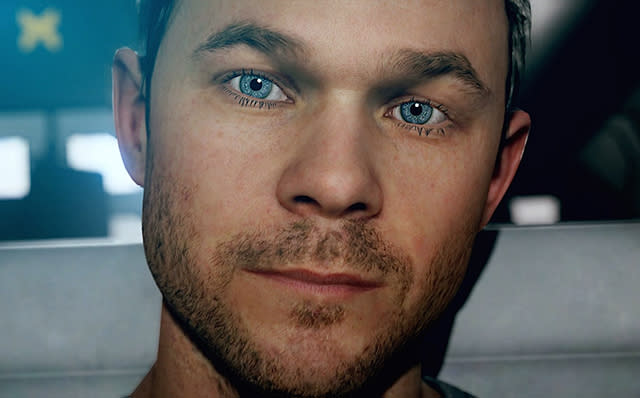
Runner-up: Quantum Break
It may not have quite lived up to the hype, and the integration of live-action TV episodes didn't really add much, but with its great story and fresh gameplay, it was the first game to really make me feel like I needed an Xbox One in my house.
Loser: Mighty No. 9
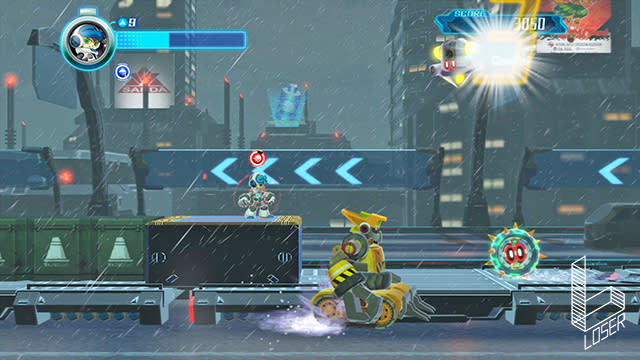
For years, Mighty No. 9 was positioned as the spiritual successor to the beloved Mega Man series, and it garnered a ton of interest as a Kickstarter project. Sadly, after many delays, the final project failed to capture my imagination in any way whatsoever. Terrible and cheesy voice acting pulled me right out of the action, and the gameplay was utterly unimpressive. I loved Mega Man, particularly Mega Man X for the Super Nintendo, and hoped Mighty No. 9 could similarly capture the feeling of an evolved Blue Bomber adventure. However, the result is a forgettable experience.

Winner: Miitomo
Sean Buckley just wants to play Star Citizen.
At the risk of destroying all my credibility as a critic, I'm calling out one of Nintendo's first mobile apps as one of the most important games of my 2016. And no, it's not the good one. But for a game to take my top pick, it has to have made an impact on my life. The only game that did that this year was Nintendo's ridiculous social question-and-answer game, Miitomo. It's a game that does almost nothing: Users create a Nintendo avatar and use it to answer pre-written questions that the game then shares with their friends. There are some mini-games and tons of costumes to unlock, but at best it's a hamstrung social network with prompts.
Objectively, it's not that great, but I played Miitomo at a peak of loneliness. During the game's launch window, I was riding a bicycle across Japan. Riding through the mountains of Kyushu was beautiful, but the aftershocks of the 2016 Kumamoto earthquakes made me feel homesick and isolated. The time difference made it hard to talk with my wife and family, but Miitomo provided a wealth of buffered conversation I could pick up at a moment's notice. It was like slow, affectionate text messaging, but with the added silliness of Nintendo's quirky social prompts. When my bike tour was over, I stopped playing Miitomo. I'll probably never play it again. But for a few weeks, Nintendo's worst app made a huge difference in my life. More than any other game in 2016.
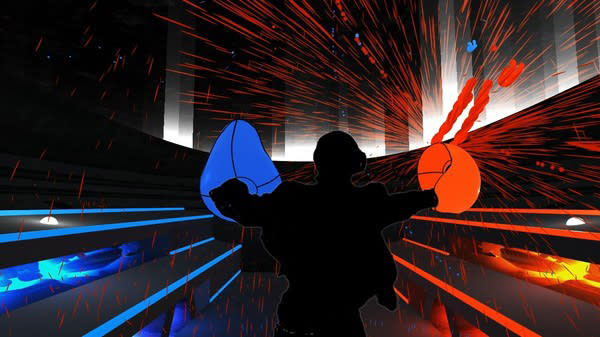
Runner-up: Audioshield
I never knew I needed to be able to punch music in virtual reality, but apparently I did. Thanks, Audioshield, you're the best shadow-boxing workout a guy could ask for.
Loser: No Man's Sky
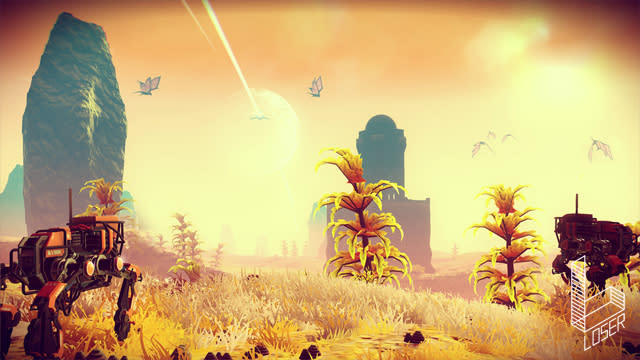
All I wanted was a mediocre space sim to hold me over until Star Citizen reached a major release milestone. No Man's Sky failed me in every way imaginable. Unlike most disappointed fans, I didn't follow the game closely before release; I just saw one early trailer and expected what I saw -- a simple but competent space sim with a procedurally generated universe. When I installed the game on my PC and found it didn't even support basic flight stick controls, my illusion fell apart. No Man's Sky was never trying to be a space sim; it was trying to be a crafting game. That just wasn't what I was looking for. I uninstalled it and have never looked back.
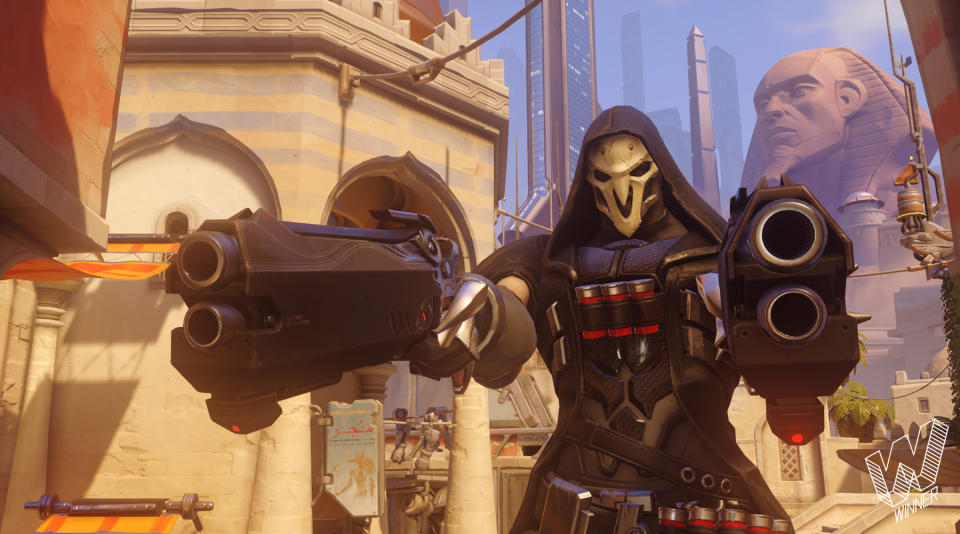
Winner: Overwatch
Devindra Hardawar just wants you to support your healers.
I once spent an entire summer during college playing Quake III Arena and Threewave (a somewhat popular Capture the Flag mod). I got to know every nook and cranny of those maps, and I reached a point where I could rocket-jump like a champ and railgun enemies from afar with ease. I've played many shooters since then, and none of them have gotten me nearly as hooked as Quake 3 -- that is, until I got into Overwatch. Sure, it's more akin to class-based FPS games like Team Fortress 2, but there's enough of the twitch gameplay and overall insanity of Quake III to give me a similar high. (I didn't think I'd ever use those rocket-shooting skills again -- Pharah FTW.)
I never got into World of Warcraft, but Overwatch alone is proof that Blizzard knows how to craft great games. All of the characters are well designed and impressively diverse and bring a wide variety of skills to the table. The game's world is alive, full of detail, and every map feels unique. Even though Overwatch was born from the scraps of a canceled game -- Blizzard's MMO Titan -- every aspect of it feels carefully constructed (aside from its ranked "Competitive Play" mode, which still needs work). It's a game I can play for a few rounds when I have a spare moment, or devote an entire evening to. And after playing for over 91 hours, I don't see myself getting tired of it anytime soon.
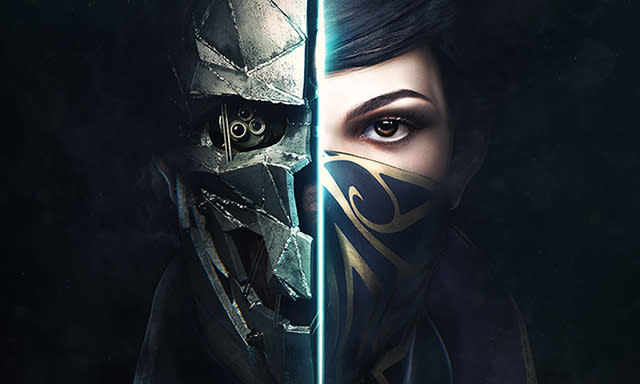
Runner-up: Dishonored 2
A refined sequel for the steampunk ninja in all of us.
Loser: Mario Maker 3DS
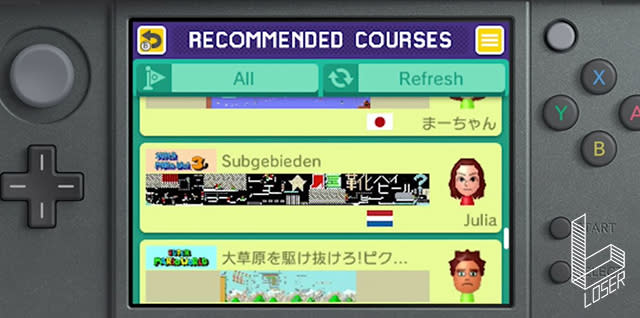
On the face of it, bringing Mario Maker to the 3DS seems like a brilliant idea. The first Mario Maker was one of the few standout titles for the Wii U, allowing you to build your own 2D Mario levels, as well as play creations from other players. Wouldn't it be great to have that experience on a portable console?! But no. The 3DS title is yet another example of Nintendo's networking naïveté: While it still lets you build levels, you can't easily share them online. Instead you're forced to swap them with other 3DS owners through local wireless or Nintendo's Streetpass. And while you can play some levels from the Wii U version of the game on the 3DS, it's incredibly hard to find specific stages. In the end, what originally seemed like a smart opportunity for Nintendo ended up being a complete waste.
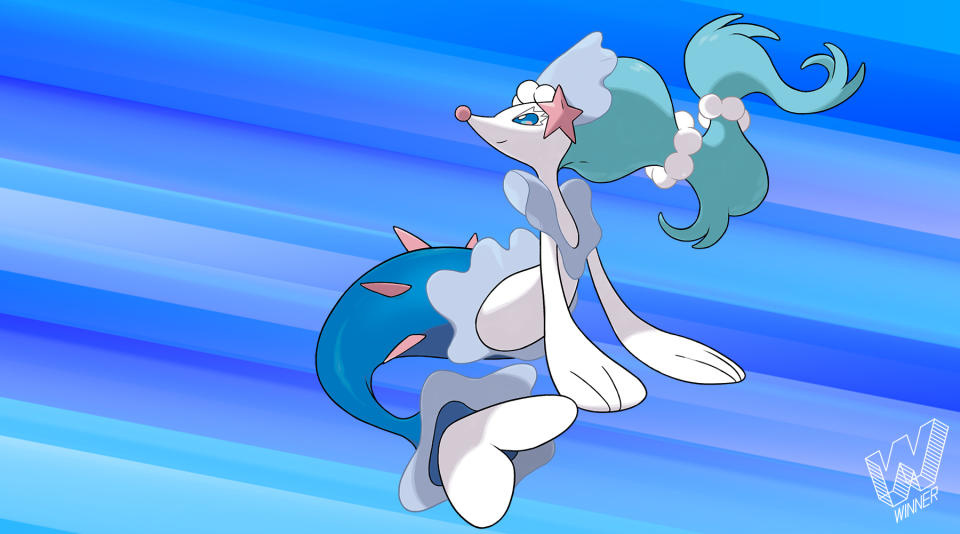
Winner: Pokémon Sun & Moon
Kris Naudus picked Primarina just to spite you.
After 20 years and 20 games, you basically know what to expect from a core Pokémon title. Go to the Pokémon Lab. Pick a starter. Travel to a Gym and fight the leader. Encounter some kind of subplot and battle minions. Walk through a cave and fend off hordes of Zubat (oh God, so many fucking Zubat). Meet a Legendary Pokémon. Save the day. Head to the Pokémon League and battle the Elite Four. Defeat the Champion. Roll credits. It's a pretty basic formula, and with over 200 million copies sold, there hasn't been much incentive to mix things up. Any major alterations risked breaking the things that made the series so popular in the first place.
So Pokémon Sun and Moon were a big risk. Instead of gym battles, you now undertake "trials" that involve battling totem Pokémon. A lot of the plot now rests not on your (silent) player character, but with a girl named Lillie and her Pokémon "get back in the bag" ... I mean Nebby. There are new features like Pokémon Ride, to call various creatures for help, and the QR scanner, to register creatures in your Pokédex. But the best part might be all the tiny changes that just make gameplay better, like healing status effects via Refresh and finally updating the pain in the ass that is organizing your Pokémon in the PC box.
In an anniversary year where Pokémon could have rested on its laurels, it decided to go for broke and do something different. I appreciate that, and look forward to seeing where the franchise goes from here.
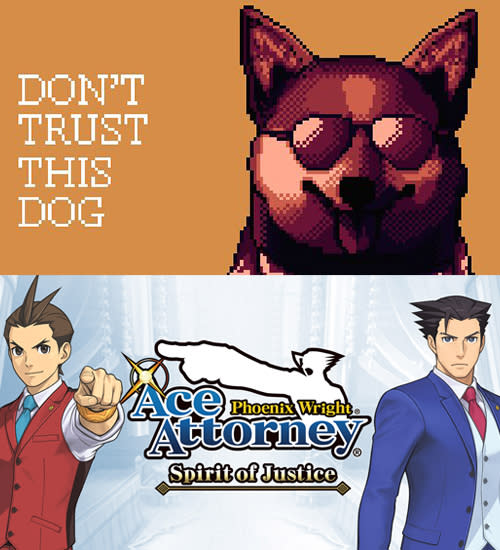
Runner-up: VA-11 HALL-A: Cyberpunk Bartending Action
The writing is so good it makes me want to write my own visual novels.
Runner-up: Phoenix Wright: Spirit of Justice
This too.
Loser: Pokémon Go
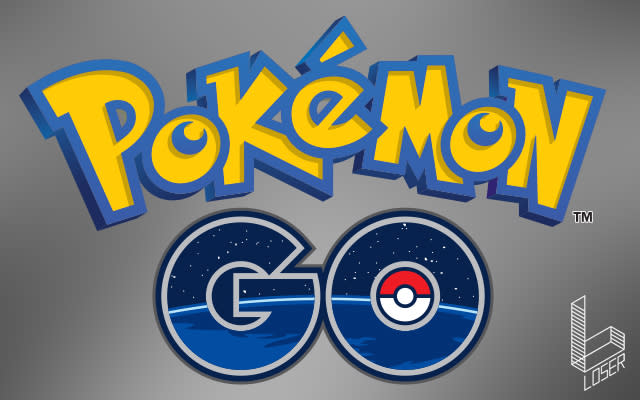
Look, I played Pokémon Go when it came out. A lot. I walked around my neighborhood at 11:30 at night in my jam-jams and flip-flops trying to catch a damn Polywhirl. And I wasn't the only one. It was a genuine phenomenon for a while, but ultimately a fad. The popularity didn't last for a number of reasons: persistent login problems, removed features and promised game mechanics, like trading, that have yet to materialize. The experience is still a bit shallow (especially compared with the core series), and even with new Pokémon added, it's unlikely a lot of people who dropped the game are ever coming back. I was in Europe a few weeks ago and realized that I should try to catch a Mr. Mime while I was there. Then I discovered that I'd never put Pokémon Go on my new phone. And I didn't care. I went and had a beer instead.
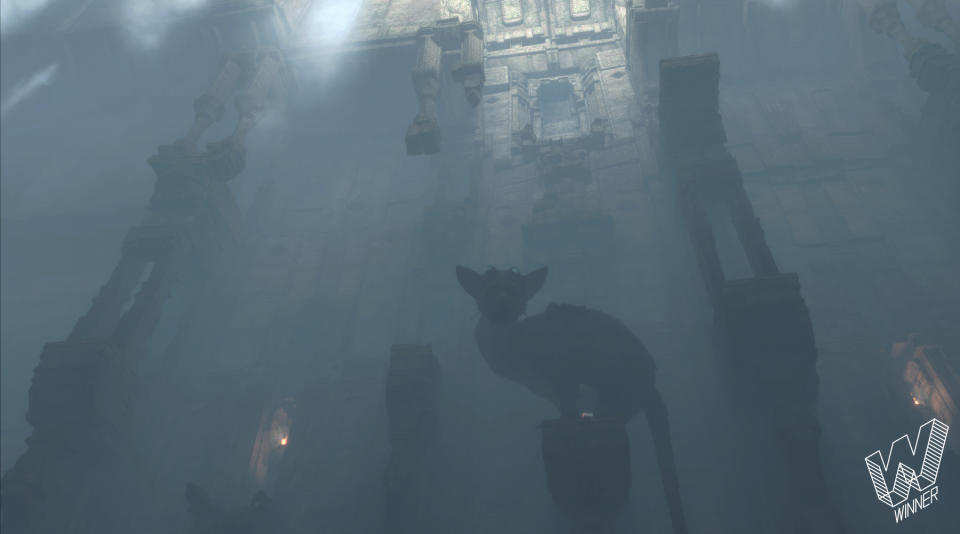
Winner: The Last Guardian
Timothy J. Seppala will take a griffin over a naughty dog.
2016 was a year of loss for me. My grandpa, with whom I was close, passed in January. A few months later, my 11-year-old bloodhound, Savanna Mae, died in her sleep. Perhaps subconsciously, I shied away from playing The Last Guardian at trade shows because of how much the giant bird-cat-lion-dog hybrid creature Trico reminded me of her. That, and I know designer Fumito Ueda's projects are never "happy" by any stretch of the imagination. Having my heart broken by the game was inevitable.
When I started playing earlier this month, Trico's size and sometimes stubborn nature immediately brought Savanna to mind. His low, plaintive cries were close enough to her baying that every now and again I found myself caught off-guard, my eyes wet. For the first time, a video-game pet didn't feel like an emotionally hollow plot device. That alone was enough to make The Last Guardian the most meaningful gaming experience I've had this year, or ever.
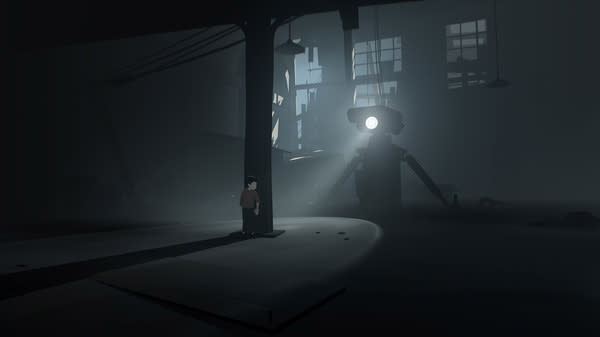
Runner-up: Inside
The way it repeatedly throws away gameplay mechanics from one scene to the next while introducing a brand-new one is nothing short of impressive, but it's the game's ending that I still think about months after finishing it.
Loser: Uncharted 4
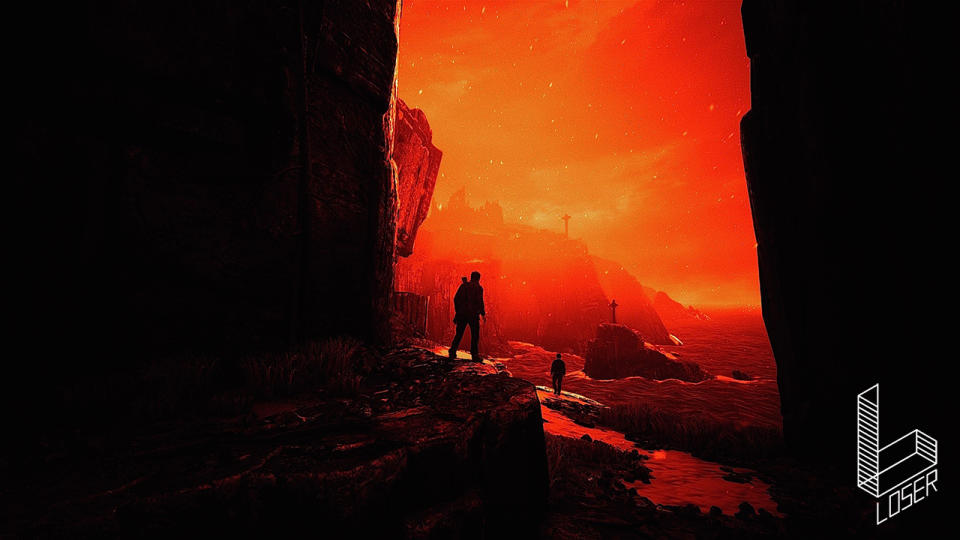
I've never liked the Uncharted games. They're well designed and very pretty, but protagonist Nathan Drake's cockiness always rubbed me the wrong way. That wasn't what bothered me about his latest outing, though. Regardless of how much developer Naughty Dog learned about characterization and plot development from its previous game, The Last of Us, the story ultimately fell flat for me -- especially at the end. Its villains were little more than cardboard cutouts with no real development of their own, either. Most damning is that for everything else the game got right (Drake finally feeling like a human instead of a caricature; exploration; a believable bond between Nate and his brother Sam), it was hindered by a nagging feeling that, despite its name, there wasn't any sense of finality.
